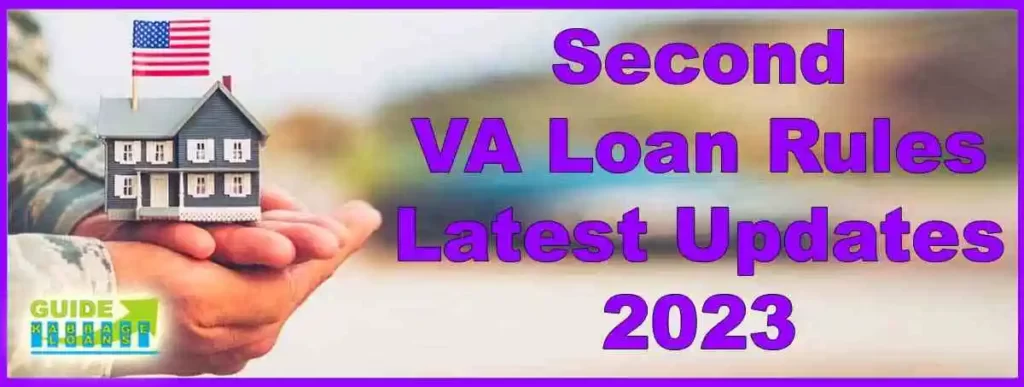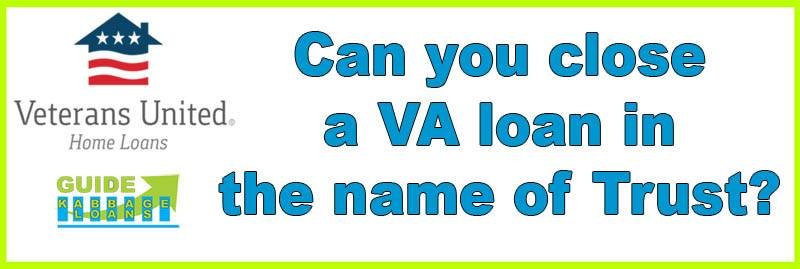When we want to sell our house and someone wants to buy our house through a VA loan, then there are some terms and conditions that we have to follow. Because if we do not fulfill the VA loan requirements for sellers then the buyer cannot buy our home. So if any home buyer wants to buy our home through a VA loan then we have to fulfill these requirements. Today in this article we will discuss all these things in detail.
What is a VA Loan?
A VA loan is a type of mortgage loan specifically designed for military veterans, active-duty service members, and their eligible spouses. It is backed by the U.S. Department of Veterans Affairs, which means the government guarantees a portion of the loan. This allows lenders to offer more favorable terms to qualified borrowers.
Key Features of a VA Loan:
- No Down Payment:
- No Private Mortgage Insurance:
- Competitive Interest Rates:
- Flexible Credit Requirements:
Is a VA Loan Good for Sellers?

VA loans can be a good option for sellers. Because they often come with competitive interest rates and flexible credit requirements, making them an attractive financing option for many buyers. Due to this, it is very easy for the buyers to buy any house and this gives the advantage to the sellers that their house is sold quickly and at the right prices.
But for anyone who buys your house through a buyer v a loan, there are some rules sellers have to follow as well. That’s why some sellers balk at VA loans. But these are the people who have some or the other problem in their documentation. That’s why a VA loan is good for every seller if all his documents are complete.
VA Loan Requirements for Sellers
Selling a property to a VA loan buyer comes with its own set of considerations for home sellers. Understanding the requirements and nuances of working with VA loan buyers can help sellers navigate the process more effectively. Let’s delve into specific requirements for sellers when dealing with VA home loans.
VA Loan Requirements for Sellers are as follows:
- Property Must Meet VA Appraisal Standards: The home must pass the VA appraisal and meet Minimum Property Requirements (MPRs) to ensure it is safe and habitable.
- Non-Allowable Fees: Sellers may be asked to cover certain non-allowable fees that the VA does not permit buyers to pay. Understanding these fees is important during negotiations.
- Seller Concessions: VA guidelines allow sellers to contribute up to 4% of the selling price toward concessions to help the buyer with closing costs or repairs.
- Funding Fee Negotiation: The VA funding fee is typically the responsibility of the buyer, but it can be negotiated to be covered by the seller as part of the sale agreement.
- Seller Disclosures: Sellers are required to disclose any known issues with the property, such as lead paint or significant repairs, ensuring that buyers are fully informed.
- Pre-Inspection Recommendations: Conducting a pre-inspection can help identify issues before listing the property, making the process smoother and potentially avoiding delays during the VA appraisal.
- Market Considerations: Sellers should understand the unique needs of VA buyers, who may have specific financial considerations and timelines, and tailor their marketing strategy accordingly.
- Prepare for VA Appraisal Process: Sellers should be ready for the VA appraisal process, which can flag property condition issues. It’s important to address potential repairs to ensure a smooth transaction.
- Potential for Not Meeting the Buyer: Sometimes, VA buyers may be deployed during the buying process and could use a power of attorney for closing, which means the seller may not meet the buyer in person.
Preparing Your Home for a VA Loan Inspection
One of the key requirements for a VA loan is a property inspection. This inspection is conducted by a VA-approved appraiser and is intended to ensure that the property meets the VA’s minimum property requirements. As a seller, it’s important to prepare your home for this inspection by addressing any safety, health, or structural issues that may be flagged during the inspection.
This may include things like repairing leaky roofs, addressing mold or water damage, and ensuring that all systems and appliances are in good working order.
VA Appraisal Guidelines for Home Sellers
In addition to the property inspection, the VA also requires a formal appraisal to determine the fair market value of the property being purchased. As a seller, it’s important to understand the VA’s appraisal guidelines and to work with a qualified appraiser who is familiar with these requirements.
The appraiser will evaluate the property’s condition, location, and comparable sales in the area to determine the home’s value.
Who Pays Closing Costs on a VA Loan, the Buyer or the Seller?
Usually, the homebuyer is responsible for paying the closing costs on a VA loan. However, in some cases, the buyer can negotiate with the seller to cover part of these costs. The VA has rules that limit how much a buyer can pay in closing costs, and there are some fees, like pest inspection costs, that the buyer isn’t allowed to pay.
These fees may need to be paid by the seller or the lender, depending on the agreement made during the sale.
Can Closing Costs be Rolled into a VA Loan?
Yes, closing costs can be rolled into a VA loan, but only the VA funding fee is eligible to be included in the loan amount. Other closing costs, such as lender fees, title insurance, and appraisal fees, cannot be rolled into the loan and must be paid upfront.1
But, VA buyers have a few options to cover these costs:
- Seller Concessions: Buyers can ask the seller to cover some or all of the closing costs. Keep in mind that the seller’s contribution is capped at 4% of the loan amount.
- Negotiating Home Price: Buyers can also request the seller to reduce the home’s price by an amount equivalent to the closing costs or VA funding fee.
VA Loan Inspection Requirements for Sellers
As mentioned earlier, the VA requires a property inspection as part of the loan process. This inspection is intended to ensure that the property meets the VA’s minimum property requirements, which can include things like adequate heating and cooling systems, safe drinking water, and a pest-free environment.
As a seller, it’s important to be aware of these requirements and to address any issues that may be flagged during the inspection.
How Much are the Closing Costs for a VA Loan?

The closing costs for a VA loan typically range from 3% to 5% of the total loan amount. However, the exact amount you’ll pay can vary depending on factors such as the lender, the property location, and the specific services required2. These costs may include appraisal fees, title insurance, and loan origination fees.
While VA loans don’t require a down payment or private mortgage insurance, it’s important to budget for these closing costs when purchasing a home with a VA loan.
Are VA Loan Closing Costs Tax Deductible?
No, most VA loan closing costs are not tax-deductible. However, you can deduct certain parts, like mortgage interest and property taxes, if you paid them as part of your closing costs. Other fees, like the VA funding fee or appraisal costs, usually cannot be deducted. It’s always a good idea to check with a tax professional to be sure of what you can claim.3
Can I Get a VA Loan with No Closing Costs?
While it’s not possible to get a VA loan with absolutely no closing costs, there are some ways to reduce the out-of-pocket expenses associated with the loan4. For example, some lenders may offer to cover certain closing costs in exchange for a slightly higher interest rate.
Additionally, the VA offers a streamlined refinance program that allows eligible borrowers to refinance their existing VA loans with minimal closing costs.
What Happens if the Seller Won’t Pay VA Loan Closing Costs?
If the seller is unwilling or unable to pay the closing costs associated with a VA loan, the buyer may still be able to proceed with the purchase. In some cases, the lender may be willing to roll the closing costs into the loan amount or offer other financing options that can help the buyer cover these expenses.
Are VA Loans Difficult for Sellers?
Selling a home to a VA buyer can be more complex than selling to a conventional buyer, but it doesn’t necessarily have to be difficult. By working with an experienced agent who is familiar with the VA loan process and requirements, sellers can help ensure that the sale goes smoothly.
Do Sellers Like VA Loans?
While opinions on VA loans can vary, many sellers appreciate the protections that the VA offers to buyers. For example, the VA appraisal process can help ensure that the property is in good condition and meets minimum safety standards.
Additionally, the VA’s restrictions on certain closing costs can help keep the overall cost of the loan more manageable for buyers.
Why Are VA Loans Bad for Some Sellers?
We A Loan Are Not Bad For Sellers, but VA loans are indeed bad for some sellers because they do not have the necessary documents that a buyer needs to get a v a loan. That’s why sellers consider VA loans bad. But this is not true.
If your property is legal and you want to sell it, then a VA loan or any other loan cannot be bad. Because the buyer will be able to buy your land or house only when his loan is approved. Loan approval happens when you fulfil all its terms and conditions.
The Common VA Loan Issues for Sellers
While VA loans can be a great option for many buyers, there are some common issues that sellers should be aware of. For example, the VA’s appraisal guidelines can be more strict than those of conventional lenders, which can make it more difficult to sell homes that require significant repairs or upgrades.
And, the VA has specific rules regarding which closing costs can be paid by the seller, which can impact the final sale price of the home.
Tips for Selling Your Home to VA Buyers
If you’re selling your home to a VA buyer, there are some specific things you can do to make the process go smoothly. For example, it’s important to be transparent about any known issues with the property, as these may be flagged during the VA inspection.
You may also want to consider offering a home warranty to help alleviate any concerns the buyer may have about potential repairs or maintenance.
Conclusion.
Selling a home to a buyer using a VA loan can be a beneficial experience for sellers if they understand and meet the necessary requirements. By preparing the property for inspection, being transparent about any issues, and knowing the specific regulations surrounding VA loans, sellers can facilitate a smooth transaction.
Faq’s
Do sellers have to pay all closing costs in a VA loan
No, sellers are not required to pay all closing costs in a VA loan. However, sellers can agree to cover certain loan-related costs and up to 4% of the home's purchase price in concessions. These concessions can include prepaid expenses, like insurance and property taxes, and other costs. Additionally, buyers may be able to negotiate with the lender to use a lender credit to help cover some or all of their closing costs.
What is a VA appraisal and how is it different from a regular appraisal?
A VA appraisal is a valuation of the property a VA borrower purchases to ensure it meets the VA's minimum property requirements. It is similar to a regular appraisal but has some additional requirements.
What happens if the home doesn’t pass the VA appraisal?
Sellers may need to make repairs or negotiate the price if the property does not meet the VA’s minimum property requirements.
Can sellers require a higher purchase price for VA buyers to cover closing costs?
No, sellers cannot require a higher purchase price for VA buyers to cover closing costs. This is against VA loan guidelines.
Thanks for your visit.
(VA loan requirements for sellers)
Disclaimer: This article provides general information on VA loan requirements for sellers. It is intended for educational purposes only and should not be considered legal advice. Readers are encouraged to consult with a qualified real estate professional before making any decisions related to VA loans or home selling. The U.S. Department of Veterans Affairs and other authorities should be consulted for specific guidance on VA loans and related regulations.





